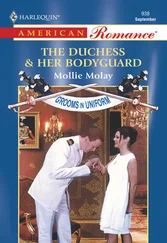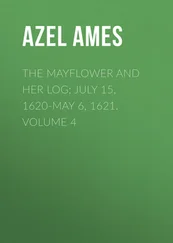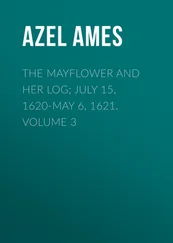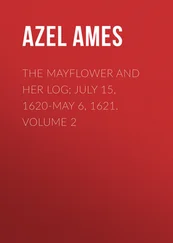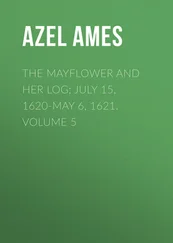What about Mrs Doucette? Creed asked. Do you ever hear?
Indeed, I could fill him in on Minette, and the scandal of the way Minette was forced to live.
Last I contacted her, said Creed, before I could answer, she was living with Doucette’s mother.
I told him that was right. After the war, Minette and Michael were liberated, hungry but unharmed, from their convent-camp in the hills. She had nowhere to go – she did not want to return widowed to Macau, and she did not come to Australia, though I think a new world would have been her redemption. She made perhaps the worst choice, joining Lady Doucette in her family house in Wiltshire. Since her elder brother had died, Constance Doucette had become the chatelaine of the place. I wrote to Minette a number of times and got back plain letters about life in the countryside and walks she took Michael on along a nearby Roman road cut in a hill of chalk. It was Dotty’s letters that told me of the full impotence of Minette’s life. During her years under Lady Doucette’s thumb, Dotty told me once, Minette and her son took their meals in the kitchen like servants, and soon discovered why Doucette had so feared his mother and flourished in the East, away from her oppressive presence. Dotty said a lot of the fight had been taken out of Minette by her imprisonment by the Japanese. Now Minette suffered the indignity of being the poor relative acquired through an ill-advised marriage, though the old dragon did send Michael Doucette to Eton, where his stepfather had gone.
At last a local landowner fell in love with the by-then middle-aged Minette and rescued her from the witch’s castle.
I paused in my recital. Then I decided, Let him hear this, even at third hand, what Dotty told me Minette had experienced. I said, While she was still at the house in Wiltshire though, one day in the kitchen garden, she says Doucette appeared to her and said, I always wanted to give you something better.
Oh dear God, he said, and put his hand to his forehead. He said, A lot of ghosts after that war, weren’t there?
It seems so. Leo had the decency never to trouble me.
We were drinking our tea by now. I steered him to that old standby topic of where else he was going while he was at this end of the earth. The winter sun was on his face and enhanced the sense he exuded of a life well lived, and a mind still active.
Oh, I’ve already been some places, I’ve just visited Melbourne again, he told me. It’s changed, but it’s still Melbourne. I always liked that place. It had a lot of character. And before then, we were up in Cairns. That’s changed too since we were there, but you only have to scratch the surface to see the old town, the houses on stilts. There’s something about that coast that won’t let it be turned into a total Florida. The mountains behind, I suppose.
And this is your last call? I asked.
Yes. I don’t expect ever to see lovely Sydney again. The truth is, Grace, I discouraged my wife from visiting today. I really wanted to see you alone. To talk about Leo and the others. To clear my slate.
I really didn’t like that sentence.
Yes, I said, feeling that peculiar flinch. I appreciate that, Jesse. But there’s my slate, too. What condition will you leave that in?
I’ll try to be careful, he assured me. I know nothing about Leo but what reflects glory on him.
I was pleased to hear it.
He paused. He said, I remember a meeting I had up in Cairns one day with Doucette and Leo and Dotty’s husband. I should tell you I was certainly trying to make a bridge with the guy – Doucette, I mean. Dotty’s husband was fine. And nothing had happened between me and Dotty at that stage. But I wanted to work with Doucette because I could tell he was a special kind of man, and I could see he and his expedition could be an important business and might get lost in the wash-up. With our help it could be something special. That’s what I believed anyhow. But he had a lot of contempt for Americans, that guy. He thought we were fools, an idea easier to argue now than it was then. But even if we were fools, we were the fools that were running the game, and everyone else, even Mountbatten, a fool enough in his own right, had to come to terms with us. Doucette thought I was being sent to clip his wings or spy on him and take his project off him. In fact I was genuinely concerned about him.
Why? I asked.
Because he was a terrier dog. And without our help, he should never have been encouraged to go again, you know. I’m sorry to say that, it must be painful for you. Cornflakes didn’t prove that the thing could be done again. It proved that the thing could be done once.
It seems you were right about that, I told him.
A silence grew and although I understood that the longer it went the more we’d be landed back with the business of cleaning his slate, I could not think of a word to utter.
Suddenly, he said, My superiors, General Willoughby, General MacArthur. They believed Doucette’s attempt to go back to Singapore was an imperial gesture, to set up a British claim for the place after the war. I know that from the standpoint of the present, their attitude might seem hypocrisy, but we Americans were genuinely all in favour of the Malays getting their self-determination, and Churchill and Mountbatten wanted back that which was theirs.
None of that mattered to Leo, I said. He just wanted to smite the Amelechites. He would have gone anywhere.
I know that, he conceded. But I was aware of one big problem I couldn’t tell Doucette about. That was, if he kept Memerang to its timetable, it would coincide with General MacArthur’s invasion of the Philippines. And the Philippines would take up all our attention. And that’s exactly what happened, Grace.
Creed seemed to have been parched by a few minutes’ conversation and drained his tea to moisten his tongue.
I was still in Melbourne in late October 1944, he said. I hadn’t been moved forward to the Philippines because I was fielding all the interceptions of Japanese radio traffic. You must know by now that early in the war we’d captured Ultra, the Japanese code, and we’d been intercepting all major signals and orders since mid-1942 onwards. These intercepts were absolute gold, Grace. Ultra. The absolute standard. And we needed to be careful how we reacted to the messages we intercepted. We couldn’t react, for example, in a manner that showed we had the code. Because we needed them to go on using it. So we could afford to take actions that looked to the enemy like skilled guesswork or good luck, but we couldn’t take action which indicated foreknowledge. You understand that?
Of course I understand that, I told him, but my jaw was set, like the jaw of an unbreakable instead of a friable woman.
Okay, he said. The recital of this triumph of intelligence now, decades after, seemed to cause him as much melancholy as it did me.
So every day, he continued, as you might imagine, the Ultra intercepts were argued about, and as a mere lieutenant colonel I had an advisory role in that. Some intercepts had to be ignored – we could have swooped in and saved this or that endangered officer, say, but that would have shown foreknowledge. That was the point, the intercepts dealt sometimes with local matters, with the movement of prisoners, say. Then at other times with considerable tactical issues, and then the entire strategic plans of the Japanese.
Look, I said. I’ve read the appropriate spy books. I’m up on my Le Carré. None of this astonishes me, Jesse.
He looked me in the eye and spoke flatly. By way of Ultra intercepts, he told me, I knew by late October that Memerang was in trouble.
I felt that prickling sensation, like the soul breaking out in hives.
You’re saying you knew, Jesse?
Читать дальше




